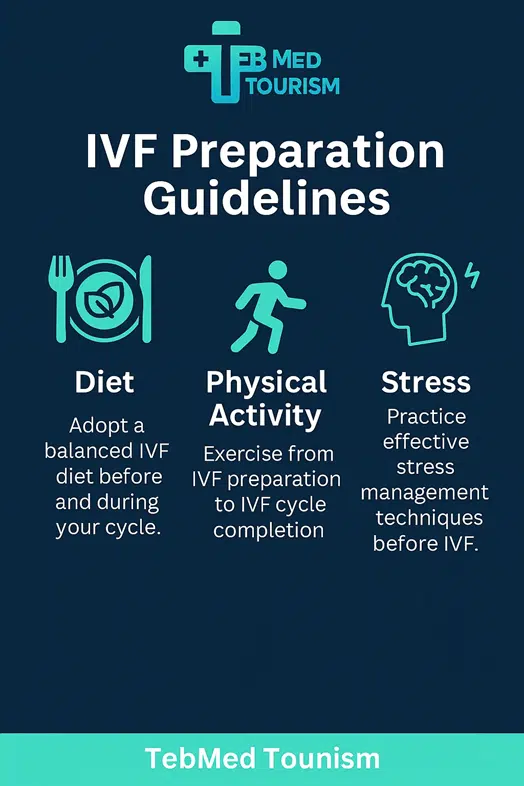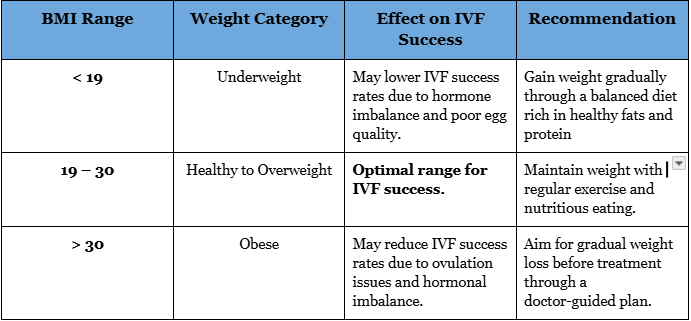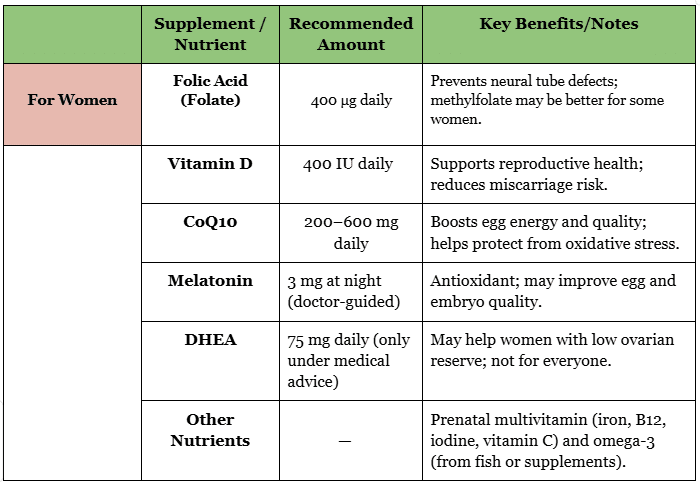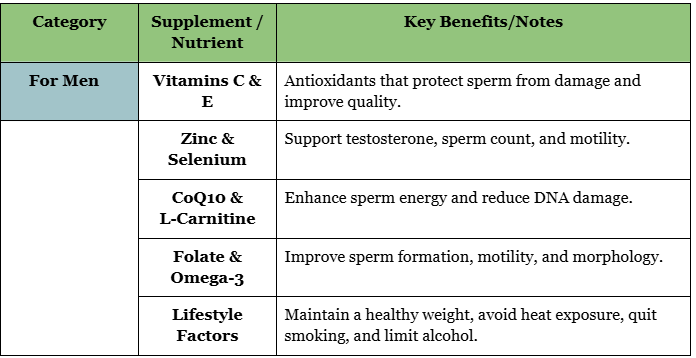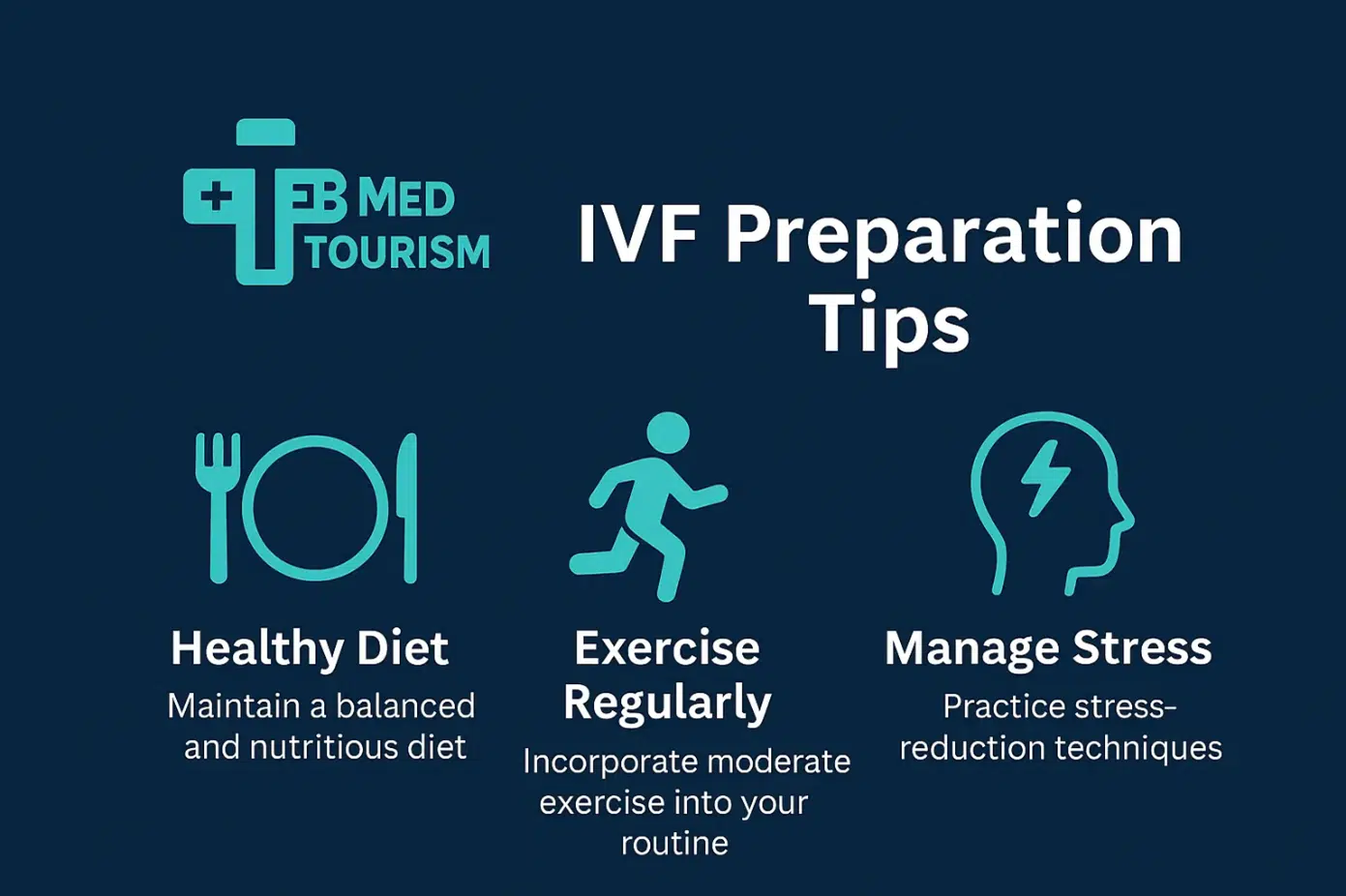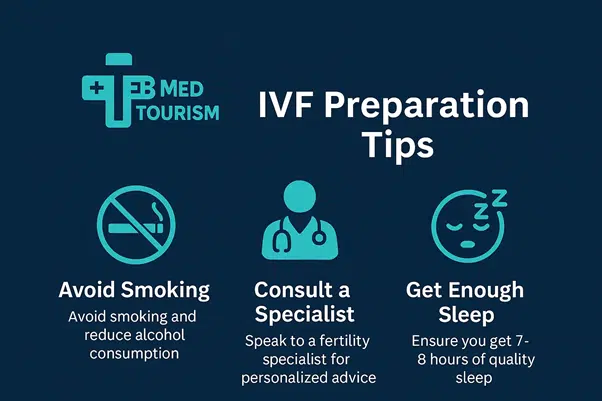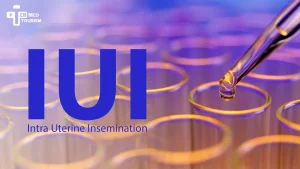When undergoing in vitro fertilization (IVF), getting your body ready for IVF beforehand can be beneficial. Numerous factors, some of which are beyond your control, can affect the success of IVF. However, one thing you can do is to make sure you’re healthy.
There are several things you should think about when you want to prepare for IVF, both before and during an IVF cycle. This will raise the likelihood that a healthy pregnancy will come from this infertility treatment.
As you get ready for, begin, and finish an IVF cycle, you could experience a range of emotions. After all, IVF can be expensive, time-consuming, and physically demanding.
What is IVF?
A complicated set of steps known as in vitro fertilization, or IVF, can result in a pregnancy. It is a treatment for infertility, a condition in which couples are unable to conceive despite at least a year of trying. Additionally, IVF can be used to stop genetic issues from being passed on to a child.
Mature eggs are extracted from ovaries and fertilized by sperm in a laboratory during the IVF process. After that, one or more of the fertilized eggs—known as embryos—are placed in the uterus, where infants are developed.
IVF cycles typically last two to three weeks. The IVF cycle timeline may take longer if these processes are divided into separate steps.
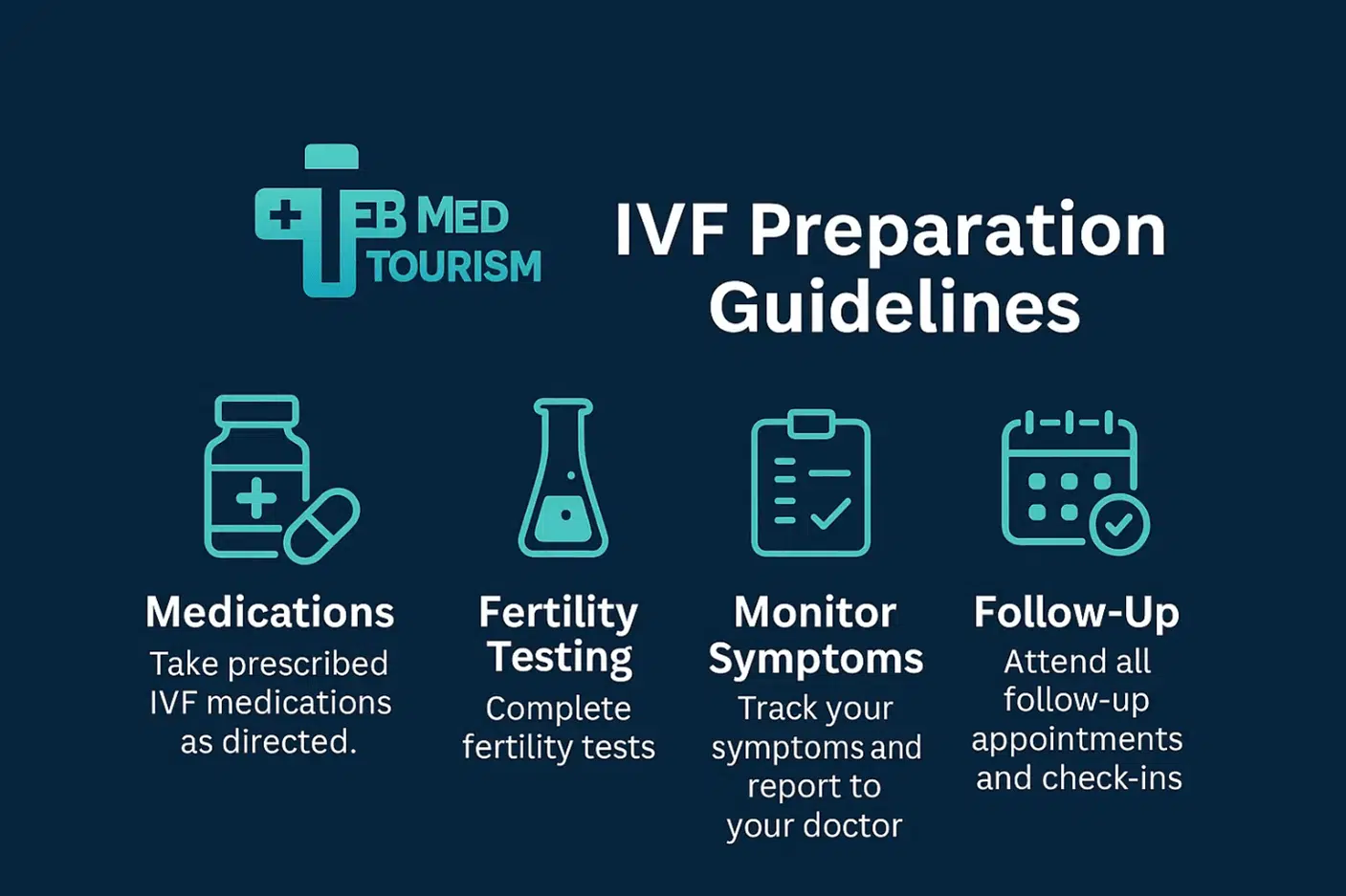
IVF is the most efficient method of fertility treatment that uses sperm and eggs or embryos. “Assisted reproductive technology” is the collective term for this set of therapies.
The sperm and eggs of a couple can be used during IVF. Eggs, sperm, or embryos from a known or unknown donor may also be involved. Someone who has an embryo implanted in their uterus, known as a gestational carrier, may be employed in certain situations.
If you’re considering affordable, high-quality fertility treatment, IVF in Iran is an increasingly popular choice due to its advanced clinics, expert specialists, and competitive costs.
How can I prepare my body for IVF?
Getting your body ready for IVF can make a significant difference in your overall experience and potentially improve outcomes. An IVF diet and/or IVF preparation diet, as well as physical, emotional, and lifestyle preparation, are all components of a well-rounded strategy. In the following, there’s a detailed guide to know how to prepare for IVF:
Diet
When preparing for pregnancy, it’s vital to maintain a healthy, balanced IVF preparation diet. This also applies if you are doing IVF. Following a Mediterranean diet may help IVF results, according to some data. Such a diet:
has little red meat and a lot of plant-based foods like fruits, vegetables, legumes, and seeds;
it also contains some dairy and lean proteins like fish, poultry, and eggs; and,
it contains unsaturated fats like olive oil and almonds.
Try to limit your intake of caffeine and avoid alcohol and smoking. These adjustments can help increase your chances of IVF success. Caffeine may reduce the success of your IVF procedure. Avoiding caffeine entirely or consuming no more than 200 mg (two cups) each day is the best course of action.
To lower the risk of low birthweight and pregnancy loss, try to limit yourself to this amount or less if you become pregnant.
Also, after embryo transfer, it’s important to be mindful of foods to avoid after embryo transfer, such as raw seafood, unpasteurized cheese, and processed meats, to protect embryo implantation.
Cutting down or stopping alcohol and smoking
Drinking more than one unit of alcohol each day, either you or your spouse, reduces the likelihood that IVF will work. Because of this, if you are drinking alcohol, try not to exceed one unit each day.
Trying to cut back or quit smoking also reduces your chances of success. Consult a doctor if you require assistance quitting smoking or cutting back on alcohol consumption. They might know where to send you for expert assistance.
Physical activity
It’s a good idea to start exercising before and throughout IVF if you’re not an active person. This may help lower your stress levels and improve your IVF success rate. Both you and your baby benefit from maintaining an active lifestyle during pregnancy.
Keeping a healthy weight
If your body mass index (BMI) is between 19 and 30, IVF tends to work better. Maintaining a healthy weight through balanced nutrition and exercise supports a successful IVF journey.
Avoiding stress
Along with your physical and dietary well-being, it’s critical to look after your mental health. Stress can affect the outcome of IVF. Fertility treatment can be an emotionally draining affair. Counseling may be provided at the clinic where you will be receiving care prior to starting therapy.
Additional stress-reduction strategies that could aid in relaxation include yoga, mindfulness, and breathing exercises. Exercise is another powerful stress-reduction strategy.
Fertility coaching
By helping you manage the psychological effects of infertility problems, fertility coaching makes you feel healthier and stronger while attempting to conceive. According to studies, mental health problems affect almost 90% of those who struggle with infertility.
It’s extremely typical to feel out of control, anxious, sad, and constantly on high alert.
In order to help you construct a compelling future, a fertility coach will ask you “what,” “what if,” and “how.” They are interested in your current circumstances.
They are focused on outcomes and will assist you in identifying the process that is holding you back from reaching your goals and objectives. Eliminating negative emotions, limiting beliefs, and previous barriers is how this is accomplished.
Reduce caffeine
Although cutting back on caffeine entirely is not required, daily intake should not exceed 200 mg. The caffeine content of two eight-ounce cups of coffee is around this amount. If IVF is successful, these restrictions should start at the beginning of the procedure and last the entire duration of the pregnancy.
Cutting back on caffeine might be difficult for many individuals. There is more to caffeine than just an energy boost. A lot of folks also like the way their caffeinated drinks taste. Reducing caffeine intake can be a little simpler with these suggestions:
- Before IVF preparation, gently reduce your caffeine intake to ease yourself into it.
- Consider making the move to low-caffeine tea or decaf coffee.
- To boost energy levels, eat wholesome meals and snacks and drink lots of water.
- Make it a daily goal to engage in some form of physical activity or exercise.
The following should only be used as a general guide. Check the caffeine content of the beverage you have chosen, as it might differ significantly between producers.
Follow IVF clinic instructions
Before beginning any supplements or therapies, always follow the instructions that are provided by your IVF clinic and speak with your fertility consultant.
In order to guarantee that each patient receives safe, individualized, and medically directed care, TebMedTourism collaborates closely with skilled IVF specialists.
We are here to support you at every stage of your IVF journey because your success and well-being are our top priorities.
Improve sleep
Health, emotions, hormones, and fertility are all impacted by the amount and quality of sleep. Some research assessed how sleep affected the release of reproductive hormones. However, little research has been done on how sleep affects IVF success.
Sleep has a positive impact on the release of reproductive hormones.
It could improve the results of IVF and fertility. On the other hand, too much sleep throws off hormone cycles and circadian rhythms. Therefore, IVF results can be affected. In order to improve IVF results, patients undergoing cycles are advised to get 7-8 hours of moderate sleep.
Dietary supplement
IVF preparation involves adjusting diet, supplements, and lifestyle several months prior to treatment so that it optimizes the quality of eggs, sperm, and embryos.
A balanced IVF preparation diet, targeted supplements, and healthy lifestyle choices—started a few months before IVF preparation—can improve fertility and help both partners feel more confident and in control during their IVF journey.
Your fertility consultant can also help you choose the IVF best protocol based on your health profile and medical history, improving your outcomes.
What health tests will I need to have?
You and your partner may need a number of screening tests prior to beginning an IVF cycle using your own eggs and sperm. These consist of:
Ovarian Reserve Testing
This entails obtaining blood tests to determine the body’s egg count. Another name for this is egg supply. The outcomes of the blood tests, which are frequently combined with an ovulation ultrasound, can be used to forecast how your ovaries will react to fertility medications.
Semen Analysis
The fluid that carries sperm is called semen. It can be analyzed to determine the quantity, shape, and motility of sperm. This test could be included in a preliminary fertility assessment. Alternatively, it could be carried out just before an IVF treatment cycle begins.
Infectious Disease Screening
HIV and other diseases will be checked for in both you and your spouse.
Practice Embryo Transfer
There is no actual embryo placed in the uterus during this test. It might be performed to determine how deep your uterus is. In the process of inserting one or more real embryos, it also assists in identifying the method that has the best chance of success.
Uterine Exam
Before beginning IVF, the lining of the uterus is examined. This may entail undergoing a sonohysterography exam. A tiny plastic tube is used to transfer fluid from the cervix into the uterus.
The fluid facilitates the creation of more detailed ultrasound pictures of the lining of the uterus. Alternatively, a hysteroscopy test may be part of the uterine examination. To see into the uterus, a thin, flexible, illuminated telescope is passed through the cervix and vagina.
What should I do if I get disappointing results?
Couples may have emotional effects from unsuccessful IVF treatments. It’s essential to give yourself time, seek emotional support, and discuss next steps with your specialist. Taking a break between IVF cycles allows your body and mind to recover before beginning again.
If you’ve had an unsuccessful IVF cycle, one thing you may do is seek out the causes. This will assist you in determining the reasons behind the failure. You also have the chance to give it another go. The second IVF cycle is expected to be more successful following evaluation.
Understanding possible IVF drawbacks, such as physical fatigue or emotional stress, can help you prepare realistically and maintain resilience.
Here are some tips to help you deal with your loss following an unsuccessful IVF attempt.
Infertility de-stigmatization
After IVF failure, there is no one way to destigmatize infertility. Every client has a different story to tell. Infertility is a socially stigmatized invisible loss. Women frequently find it challenging to ask for assistance or support from others because they are embarrassed to discuss the illness. Fortunately, there are numerous approaches to destigmatizing infertility and having constructive conversations about it.
Coping with loss
Men and women experience grief after IVF fails, and both of them need one-on-one assistance. Some proposed making counseling necessary when IVF treatments failed so that couples could deal with their emotions in between cycles.
Others proposed pairing spouses with professionals to help them through the grief process. In several instances, the males were unable to communicate their sorrow, but they were able to demonstrate their support through the women’s emotional outpouring.
Getting professional support
Couples frequently need assistance to deal with their sorrow and loss following an unsuccessful IVF procedure. Although friends and family can provide assistance, professional counseling and support groups can also be beneficial.
Recognising that you need to grieve
You’re undoubtedly struggling with the concept of grief following an IVF failure if you’re dealing with the reality of infertility. Remember that you’re not the only one thinking about IVF. You may destigmatize infertility and receive expert assistance. After an IVF failure, there are three things to think about.
How successful is IVF?
Couples may try IVF more than once before succeeding. The results of fertility treatments depend on methods used by the top medical and scientific experts, but even in those cases, the desire of becoming a parent is not guaranteed. Numerous variables, such as age, general and fertility health, and heredity, affect the success rate.
Of course, there are IVF guarantee packages that provide pregnancy-enhancing packaged IVF treatment alternatives together with a discount and savings in the event that fertilization is not successful.
Many IVF clinics, like TebMedTourism, which is a leading medical tourism facilitator, provide and market this kind of IVF plan as an IVF money-back guarantee, an IVF refund program, a guaranteed IVF program, or an IVF multi-cycle program.
Conclusion
When you want to prepare for IVF, applying the best possible basis for your health, mind, and emotions plays a vital role in your fertility treatment. A healthy lifestyle, eating a balanced diet, and practicing effective stress management, appropriate supplements, and restful sleep can all increase the chances of a successful IVF.
Fertility coaching, as well as the emotional aspects, and a professional physician are also important in a successful IVF and when you are getting your body ready for IVF. Every small step you take toward a healthier, more balanced life brings you closer to turning your dream of parenthood into reality.
How long does preparation for IVF take?
It starts a few months before treatment to maximize the quality of your eggs, sperm, and embryos. The actual IVF cycle takes two to three weeks, although thorough planning should ideally begin several months beforehand.
What are the best nutritional supplements to prepare for IVF?
The best supplements include folic acid, vitamin D, CoQ10, melatonin, DHEA, prenatal multivitamins, and omega-3 fatty acids. Vitamins C and E, zinc, selenium, CoQ10, and L-carnitine improve sperm quality and motility in men.
What are the best exercises to prepare the body for IVF?
Regular, moderate exercise, such as yoga, swimming, walking, or mild aerobics, is ideal for IVF preparation. It helps maintain a healthy weight, lessen stress, and enhance circulation without putting too much strain on the body. Avoiding high-impact or very vigorous exercise is advised.
Which diet plan is suitable for IVF?
A Mediterranean-style IVF diet is recommended for IVF preparation, and this balanced diet improves fertility and overall health before treatment. It includes:
- Fruits, vegetables, legumes, nuts, and seeds
- Lean proteins like fish, poultry, and eggs
- Healthy fats (olive oil, avocado, almonds)
- Limited red meat and processed foods
How does caffeine consumption affect the IVF process?
Overconsumption of coffee may reduce IVF success rates. Keep your daily intake to 200 milligrams, or around two cups of coffee. Caffeine should be fully avoided during therapy and pregnancy to reduce the risk of low birth weight or miscarriage.
Does smoking affect IVF results?
Yes. Smoking significantly reduces IVF success because it affects egg quality, implantation, and pregnancy outcomes. Quitting smoking before treatment can greatly improve fertility and overall health.








